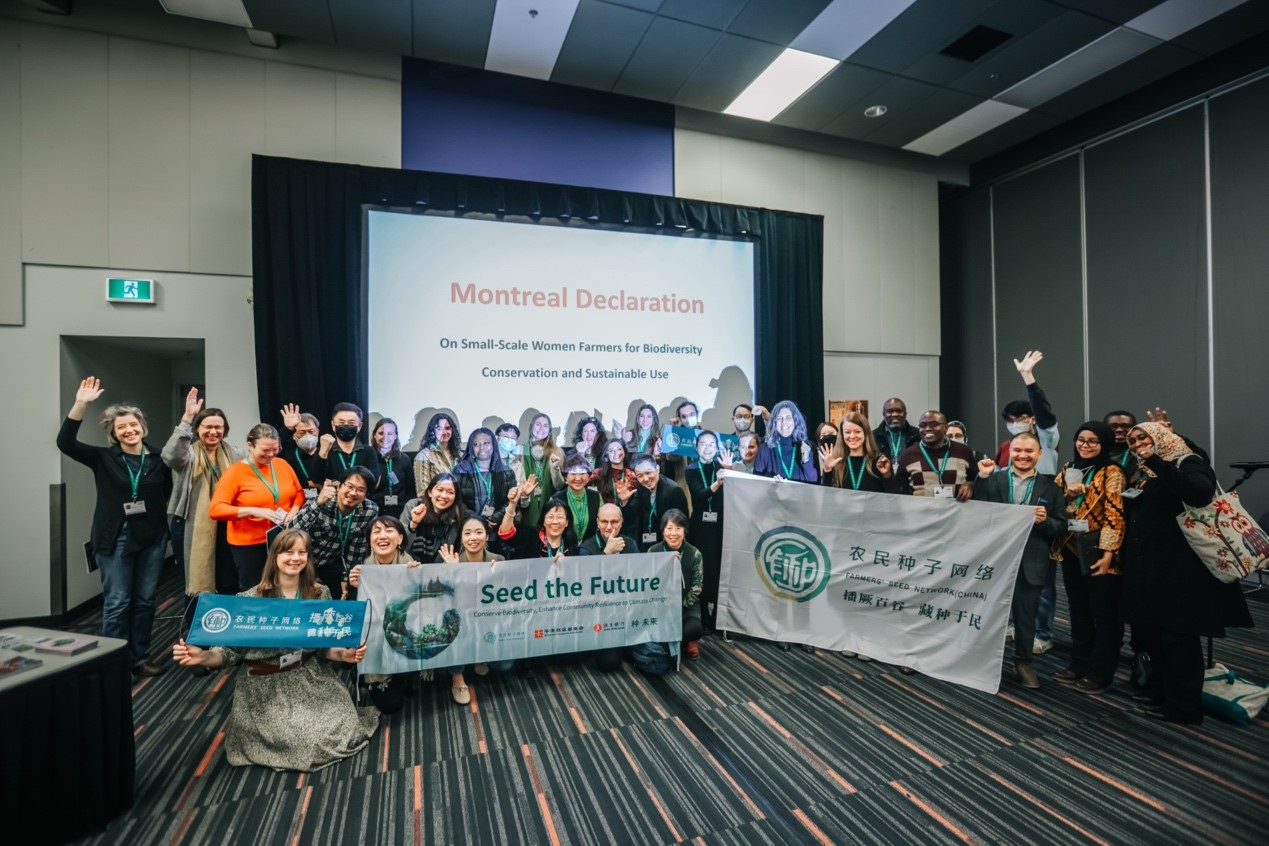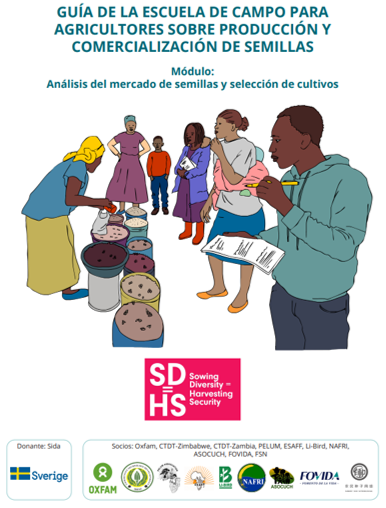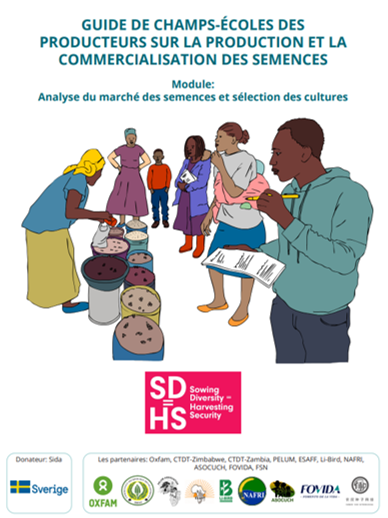SD=HS work in China is lead by Farmers’ Seed Network, the team attended both COP15 and COP27 last months. They share their reflections on both events.
By Xin Song, Yiching Song, Yufen Chuang
COP 15 – Montreal, Canada, 7-19 December
The COP15 had diverse issues, including more attention to agrobiodiversity and the first full-day “Food Day” forum about food systems transformation. It highlighted the linkages between biodiversity, agriculture and healthy food systems, pointed out how industrial agriculture has increasingly bankrupted biodiversity and explored how nature and human could work together via agroecology and biodiversity friendly solutions for food system transformation. Representatives of multiple stakeholders and different organizations have participated, such as International Organizations, scientists, small farmers, Indigenous People and local communities, women, and local NGO networks.
However, “seeds” and agrobiodiversity were rarely mentioned as an issue, except in one presentation of the food day, especially for farmer seed systems.
We, as representatives of FSN, pointed out in the discussion during this Food Day that “living seed diversity and sustainable utilization are the roots of healthy nature and humanity, they are the base for food transformation and sustainability. Small farmers, especially women, are unsung heroes in maintaining this process and urgently need more recognition and support!” It’s good to see that more and more governments and organizations are paying attention to sustainable agriculture, food systems, food security and nutrition, from policies to funding resources, especially in Food Day Forum and Target 10 discussions and negotiations.
In the Kunming-Montreal Global Biodiversity Framework (GBF), target 10 highlighted agriculture, including sustainable agriculture, biodiversity, and agroecological approaches. Smallholder farmers, women and Indigenous Peoples are key to contributing to agrobiodiversity.
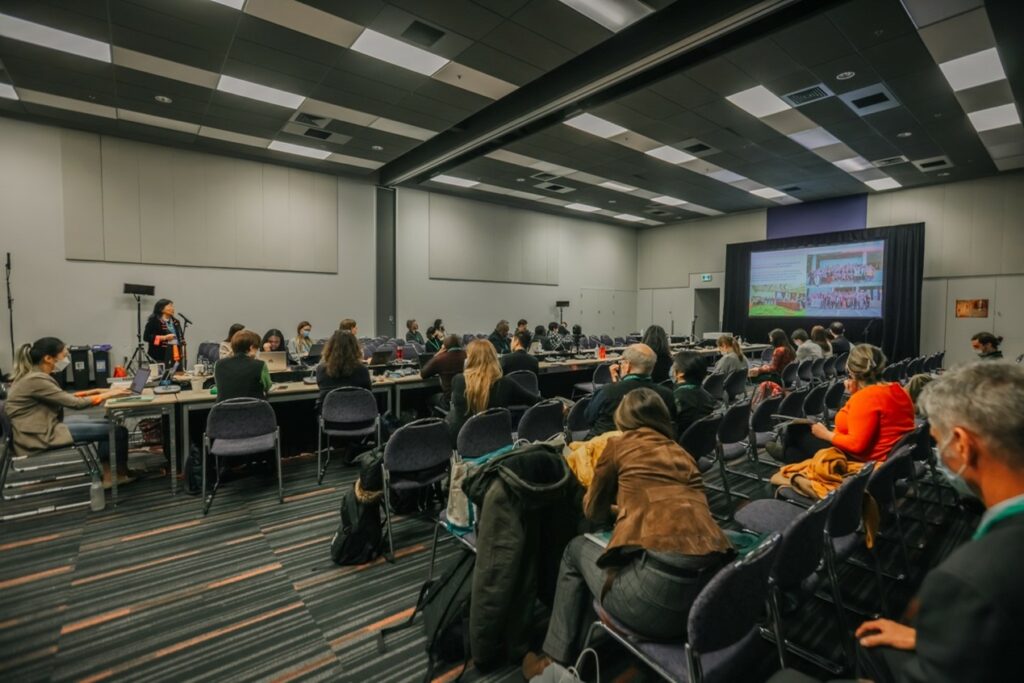
On December 9, 2022, the Farmers’ Seed Network and UNEP-International Ecosystem Management Partnership co-organized a side event titled “Small farmers, farmer seeds systems and sustainability: Linking indigenous communities with science & multiple stakeholders via local NGOs platform for collaboration, innovation, and adaptation“. It was held at the Asia Pacific Pavilion in COP15. The session focused on the implications of the Post-2020 Global Biodiversity Framework for farmer seed systems, the participation of smallholder women in agrobiodiversity conservation, and local practices and challenges in addressing climate change.
The Montreal Declaration on Small-Scale Women Farmers for Biodiversity Conservation and Sustainable Use was launched by participating partners from Asia, Africa, and Latin America, based on 20 years of collaboration between farmers’ seed networks linking smallholder farmers, scientists, and social organizations.
Montreal Declaration
On Small-Scale Women Farmers for Biodiversity Conservation and Sustainable Use
You can find the full Montreal Declaration on the FSN website or download it below. Below is the text from the press release.
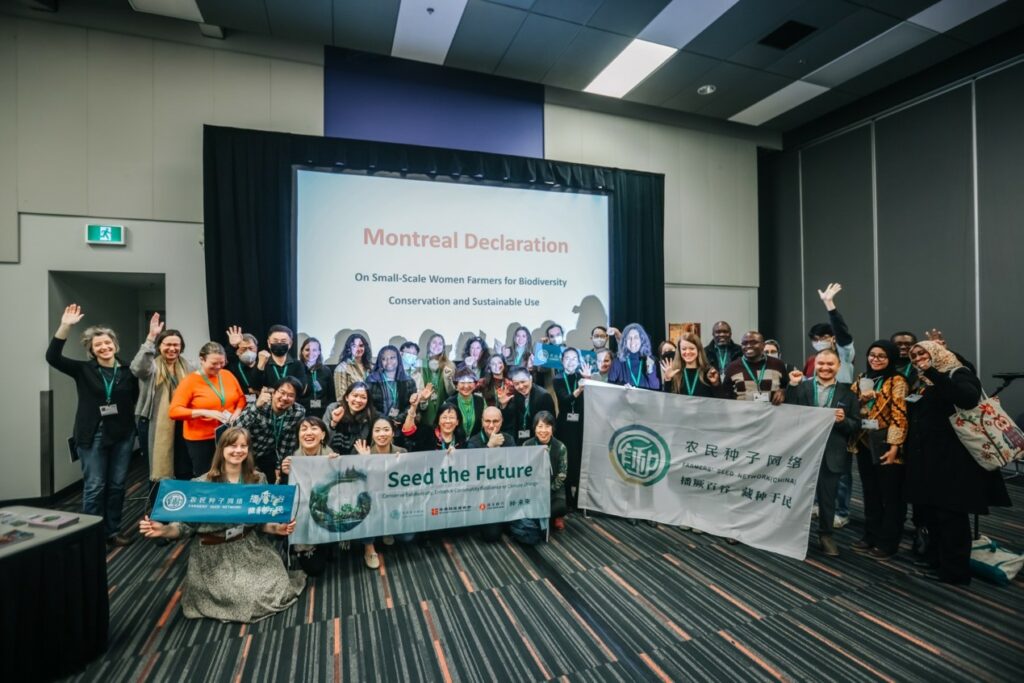
As a farmer said, “No healthy living seeds, no healthy food!”
The Montreal Declaration on Small-Scale Women Farmers for Biodiversity Conservation and Sustainable Use builds on two decades of collaborations amongst different partners, including Indigenous Peoples from Asia, Africa and South America, and research and social organizations from both the South and North. We jointly organized COP15 side events in Kunming and in Montreal, to share our long-term collaboration results, achievements and community-based solutions in farmer seed systems enhancement, livelihood resilience, climate change and healthy food systems.
The side event in Kunming, “High Level Policy Forum and Dialogue: Collaboration and Cooperation: The Roles of Communities, Science and NGOs in Biodiversity Conservation and Utilization” brought together 200 participants in person, more than half were small farmers from 16 indigenous communities in South West China, in dialogue with policy makers, researchers and civil society representatives from different continents. They jointly called for more recognition and support for small-scale farmers, Indigenous Peoples and their farming seeds system, traditional knowledge, and biocultural heritage. This served as the basis for the side event at COP15 Montreal, “Small farmers, farmer seeds systems and sustainability: linking indigenous communities with science & multiple stakeholders via local NGOs platform for collaboration, innovation, and adaptation”.
The community-based conservation and sustainable use process includes community seed banks, participatory plant breeding, landscape management, traditional water management systems, and landscape-based biocultural products and services linking agroecology and healthy food systems. These community-led actions are crucial for confronting the interconnected crises of biodiversity loss, climate change and food insecurity and for achieving food system transformation.
Full Montreal Declaration on the FSN website.
COP 27 – Sharm El Sheik, Egypt, 6-18 December
We reaffirmed that the nexus of halting and reversing biodiversity loss, adapting to climate change, and transforming food systems lies in the small-scale farmers led community-based adaptation (CBA) for nature based solutions (NBS) with the continuous support from a multi-stakeholder platform.
There is a need to strengthen investments to local NGO networks, to deliver finance and customized capacity-building mechanisms to support such CBA and NbS at the local level.
Invitation: Together we should establish a “Small Farmers Pavilion” at COP28 for more voices and participation of small farmers who are unsung great actioners in climate change adaptation at the local level.

